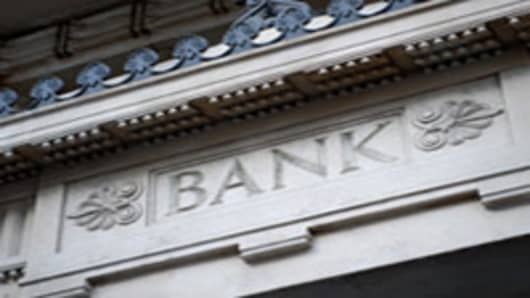Europe’s banks are bracing for a fresh test this month: whether they can successfully sell unsecured bonds.
The region’s banks have sold less debt in total so far this quarter than in any comparable period going back to 1996 – when their financing needs were a fraction of their current levels.
Although US companies and banks have continued to tap the market through the summer, Europe’s traditional August lull turned into an absolute freeze as fears over banks’ liquidity caused broad market turmoil and drove borrowing costs sharply higher.
Banks’ ability to sell bonds has wider economic consequences since higher costs or a prolonged freeze will restrict their ability to lend, potentially worsening the economic slowdown.
“European banks have unquestionably been squeezed in funding markets in recent months, and it would be surprising not to see this start to show up in lending surveys before long,” said Joseph Faith, credit strategist at Citigroup.
In August, the cost of insuring European banks’ debt against default hit a record.
Banks eased the strains by selling covered bonds – debt secured against pools of loans – last week, but the unsecured market is the bread and butter of the sector’s financing and has been effectively closed since early July.
Bankers estimate that even the best banks would currently have to pay almost twice as much as similarly-rated companies in other sectors to sell bonds.
“Can banks issue unsecured bonds? Yes. The question is really whether they are willing to be the first and crystallise these high prices,” said Frederic Zorzi, global co-head of the syndicate team at BNP Paribas, who warned that any would-be issuer would have to be very careful or risk a failed issue closing the market for others.
The biggest banks have already completed up to 90 percent of their borrowing needs for this year, according to a survey by Morgan Stanley analysts.
“Balance sheet liquidity stress is not currently that high, but the current market conditions – wide pricing and limited access – cannot be sustained for too long before stresses do show,” said Sandeep Agarwal, head of the European financial institutions debt capital markets team at Credit Suisse, who however remained confident banks could issue soon if markets stabilised for a few days.
“There will come a point when either banks will accept these are the new levels, or investors will say ‘these spreads are attractive’ and want to [invest] – I think there will be a little of both.” The higher prices have already taken their toll on the covered bond market, where banks can borrow most cheaply.
ING, the Dutch lender sold triple-A rated bonds priced at 80 basis points over midswaps – a pricing benchmark – but Italy’s UniCredit paid 215 basis points the next day to sell equivalent debt, reflecting market fears over the Italian government’s finances.


